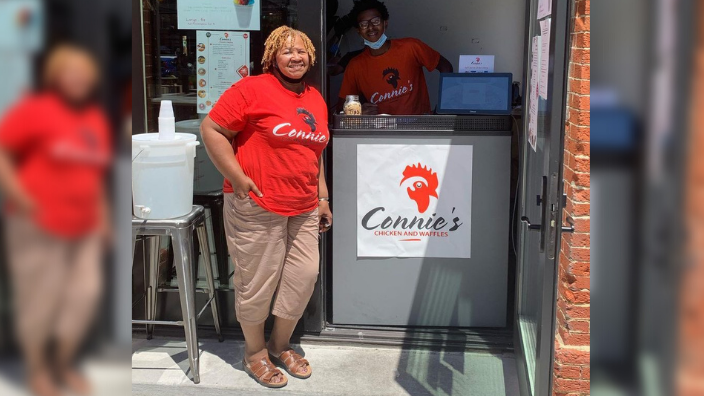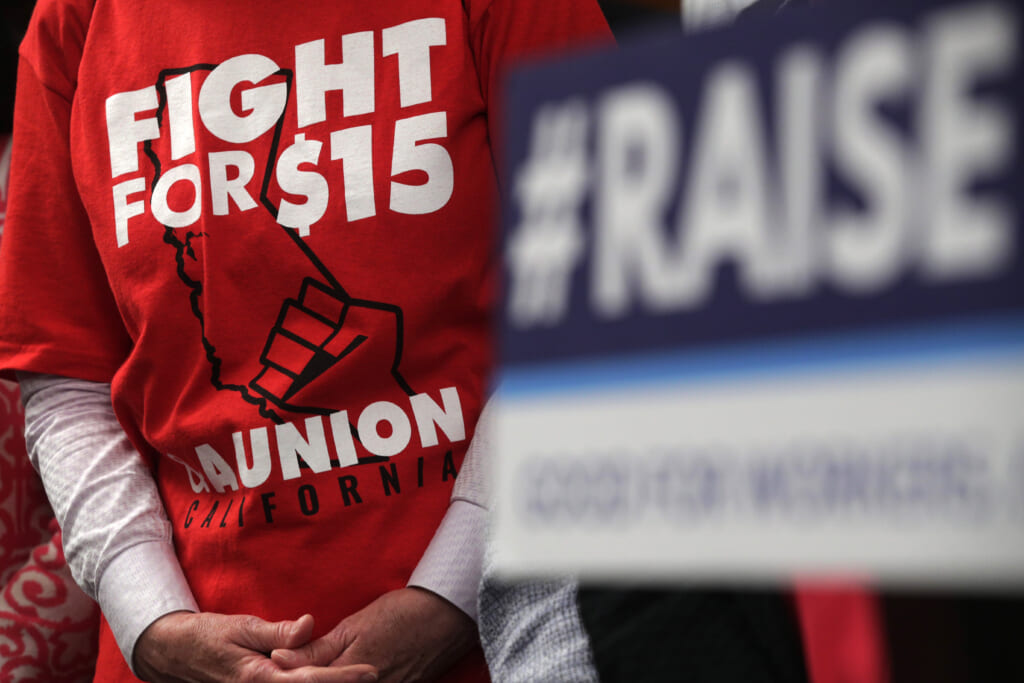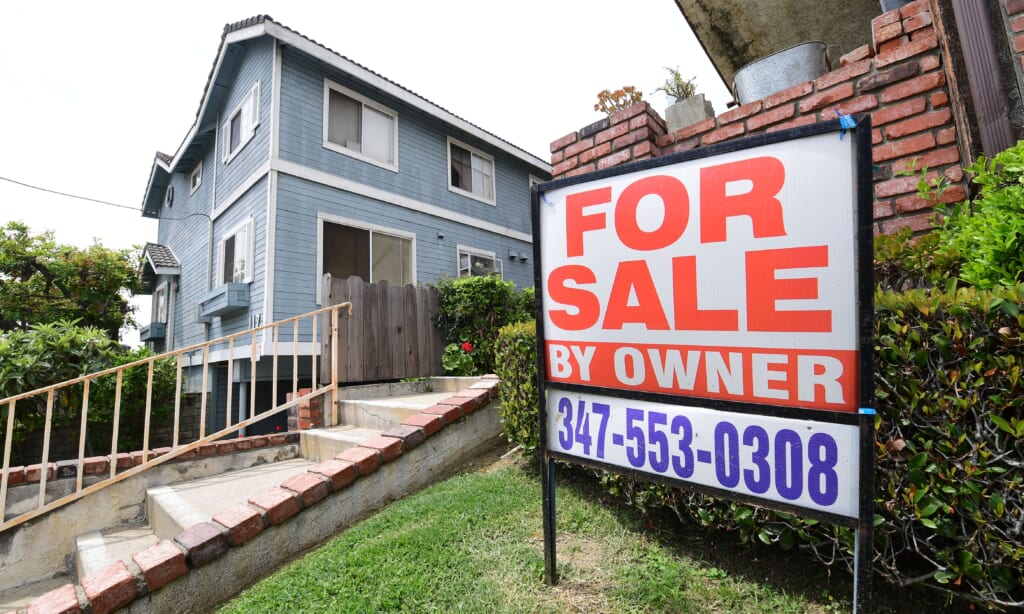
Black business owners feel they are experiencing the brunt of high inflation rates, but experts point to the 1980s as an indication that the worst has yet to come for the Black community as a whole.
Khari Parker, co-founder of Connie’s Chicken and Waffles in Baltimore, told theGrio there is a heightened pressure for Black-owned businesses to weather the rise of inflation without signaling to customers that there are challenges.
“We’ve intentionally kind of, you know, struggled internally with rising prices, because we want to make sure that the customer gets amazing food and an amazing experience,” Parker explained.

At a time of labor shortages, supply scarcities, and inflated prices, some Black businesses have held off on making changes that could impact customer experience out of a deep rooted fear of feeding into stereotypes.
“When we started the business, we said we wanted to dispel any kind of myths that say African American businesses can’t do things as well as any other business,” Parker added.
According to crosstabs data from a newly released survey from Goldman Sachs, exclusively obtained by theGrio, 60% of Black small business owners have increased the prices for products or services in comparison to 68% of an overall population of business owners.
Additionally, the survey indicates that Black-owned small businesses are more likely to say inflation has very negatively impacted their financial health.
Census data shows that there are more than two million Black-owned businesses in the United States, but other areas that have high representation of Black workers are the public and federal sectors. These divisions of the labor force stand to see long-term negative impacts from inflation.
Public and federal sector paychecks are funded by tax revenue, and during periods of high inflation tax revenue can take a hit due to decreased consumer spending. Terrence Melvin, president of the Coalition of Black Trade Unionists, warns that a hit to the public sector will create cyclical economic issues for many Black households.

“That’s one of the reasons why our unemployment rate goes up, because we’re in those vulnerable jobs,” Melvin contended.
Upon being laid off, Melvin added that former local, state and federal workers in need of government assistance usually turn to the same offices they once worked for resources, only to find that the government agencies are now understaffed. Such was the case in the 1980s when inflation hit 6.16%.
Black unemployment reached a record high of 21.20 in January of 1983 after Paul Volcker, then-chair of the Federal Reserve raised interest rates in an attempt to lower inflation by shocking the economy with an induced recession.
“The effects of that were felt throughout the eighties,” said Kyle Moore, an economist with the Economic Policy Institute’s Program on Race, Ethnicity, and the Economy. “Unemployment has well documented negative effects on folks’ psyche and their disposition.”
Moore sees a link between the high Black unemployment rate of the 1980s and more notable increased rates of substance abuse during that time period.
Moore and Grieve Chelwa, director of research for the Institute on Race, Power and Political Economy at The New School agree that workers who are in a position to bargain should request their wages to be indexed to inflation. They anticipate this would keep wages on pace with inflation and lessen the impact of rising prices on individual consumers.
“It’s not very easy for you to increase your wages,” Chelwa cautioned. “Most people, Black people, marginalized workers, poor people don’t have that kind of power, to be able to immediately command an increase in wages, that allows them to be covered, for inflationary increases.”

Both Moore and Chelwa believe it is more likely that the unionized labor force will be able to secure indexed wages. TheGrio asked April Verrett, President of SEIU Local 2015 in California, if she would consider bargaining for the option. She told theGrio she’d be open to pursuing it, but believes wages on their own must rise to a livable wage before inflation is factored into the equation.
“We can do all of the bargaining and enhanced bargaining and add on that, then,” Varrett explained. “But if we don’t have workers starting from a place where they stand a chance to succeed in this economy, you know, something has to change.”
Dana Peterson, chief economist and center leader of economy, strategy & finance at The Conference Board warned that increasing wages outside of a contract as inflation strikes could prompt a wage-price spiral.
“A wage price spiral is a very negative thing, because that’s how prices get out of control. And that’s when the [Federal Reserve] would have to come in and really put the hammer down,” Peterson said.
Black consumers are also getting hit hard by inflation. Peterson highlighted that the erosion of purchasing power adds onto the challenges of maintaining economic stability during the pandemic.
One area many experts are keeping their eye on is the housing market. Black homeownership hit its lowest rate since the 1960s just last year. Inflation limiting purchasing power and the prospects of increased interest rates are likely to impact efforts to increase Black homeownership.

“The unfortunate side of the pandemic that has kind of come and gone now is that during the pandemic, we had some of the lowest interest rates that were ever available in the country,” Brian Young, CEO of Home Lending Pal told theGrio. “In some cases, now, those interest rates are going back up.”
Home financing experts recommend comparing lending rates and reviewing as many lending offers as possible to combat the market outlook. One tool that has emerged with a goal to get people indiscriminate lending rates is Home Lending Pal, a digital program that uses blockchain technology to present lenders financial information of prospective borrowers without disclosing demographic information.
Young is optimistic about slight interest rate increases. He thinks it will provide opportunities for home buyers.
“Right now is really a seller’s market, and you’re going to see it kind of shift back to be more of a buyer’s market,” Young added.
Have you subscribed to theGrio podcasts “Dear Culture” or “Acting Up?” Download our newest episodes now!
TheGrio is now on Apple TV, Amazon Fire and Roku. Download theGrio.com today!
Source link
 Black America Breaking News for the African American Community
Black America Breaking News for the African American Community

